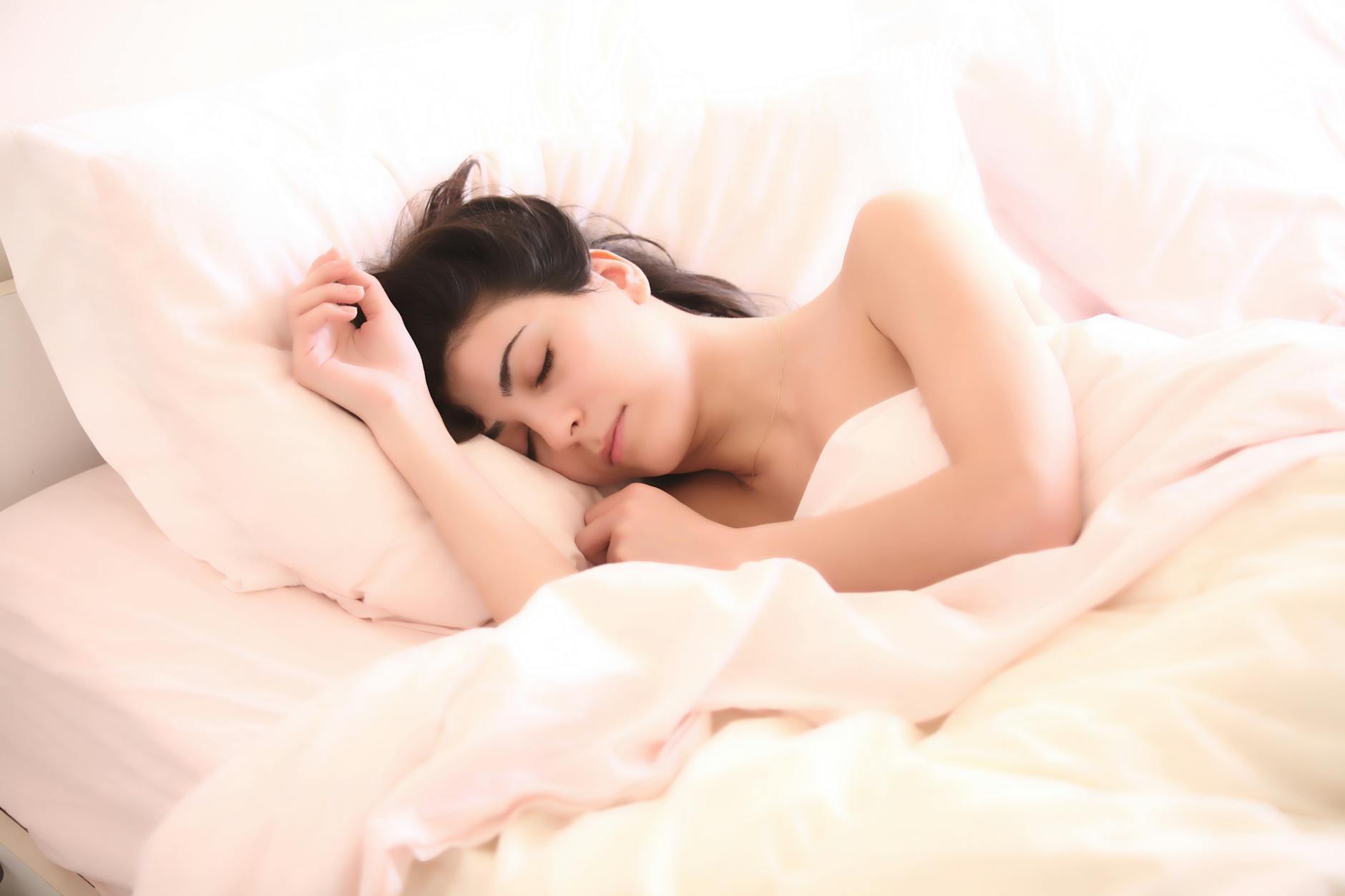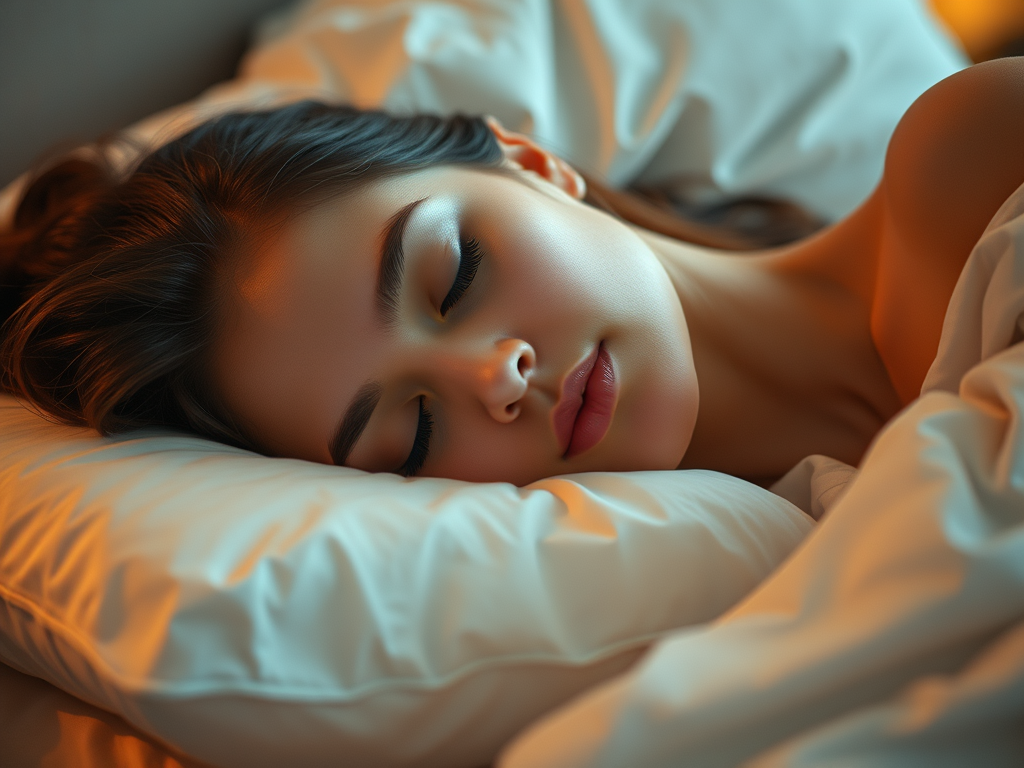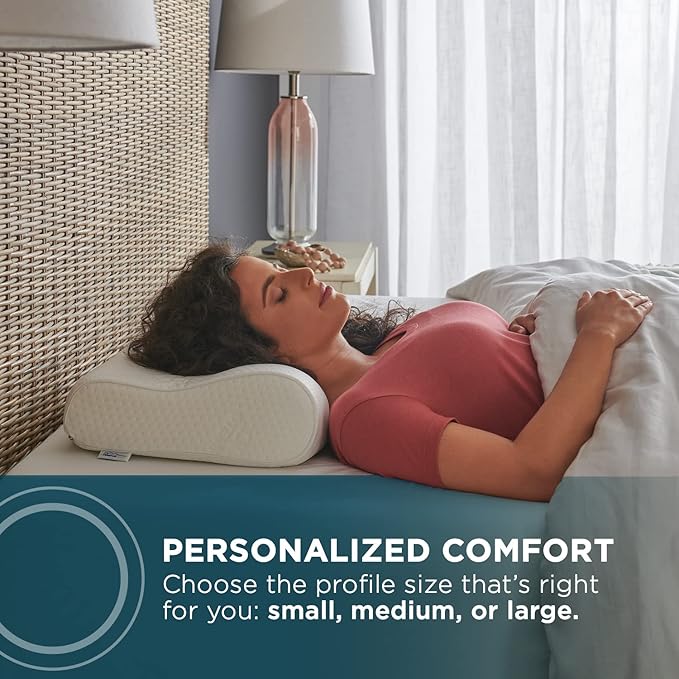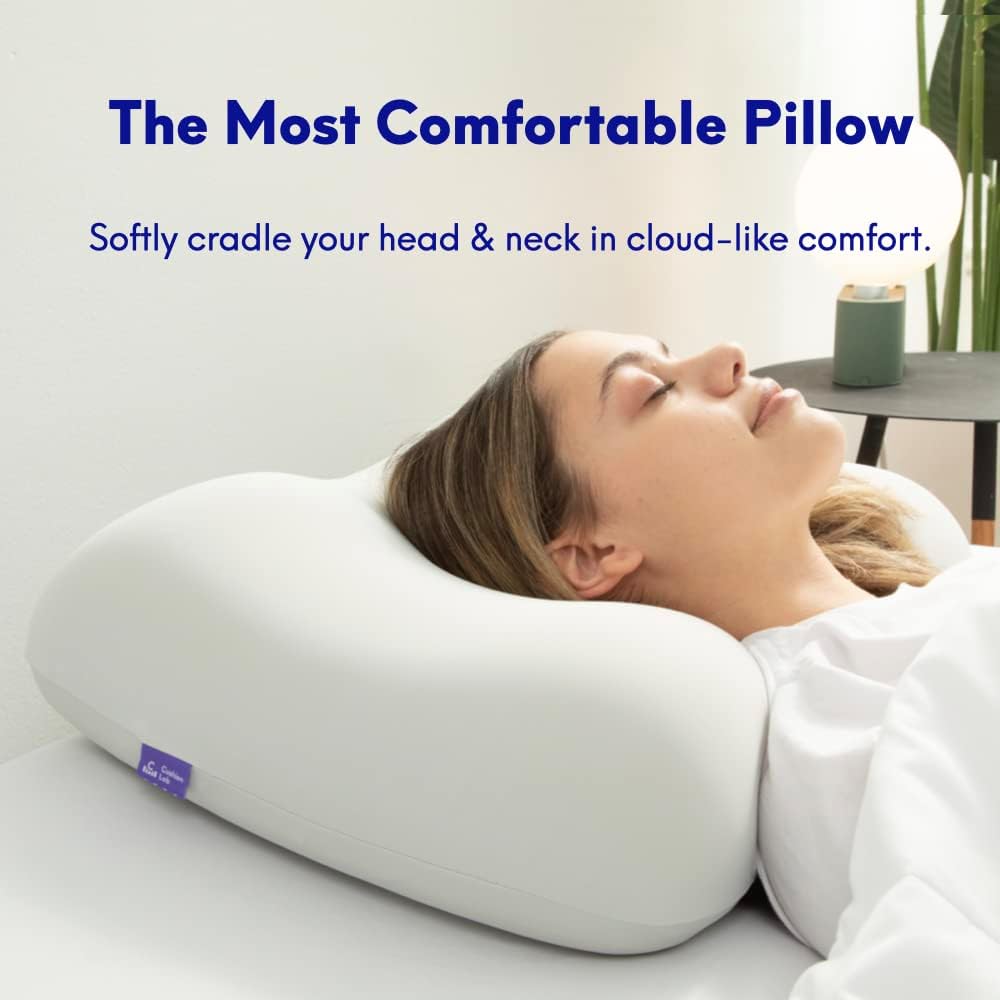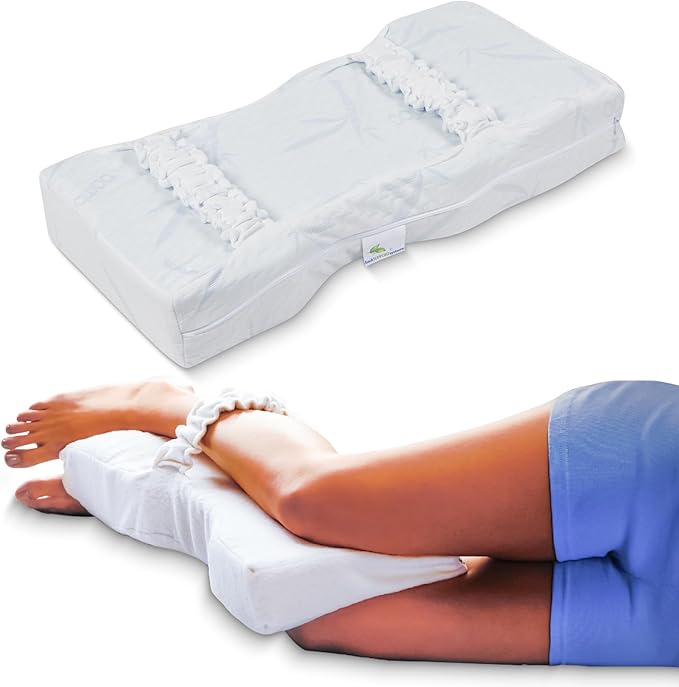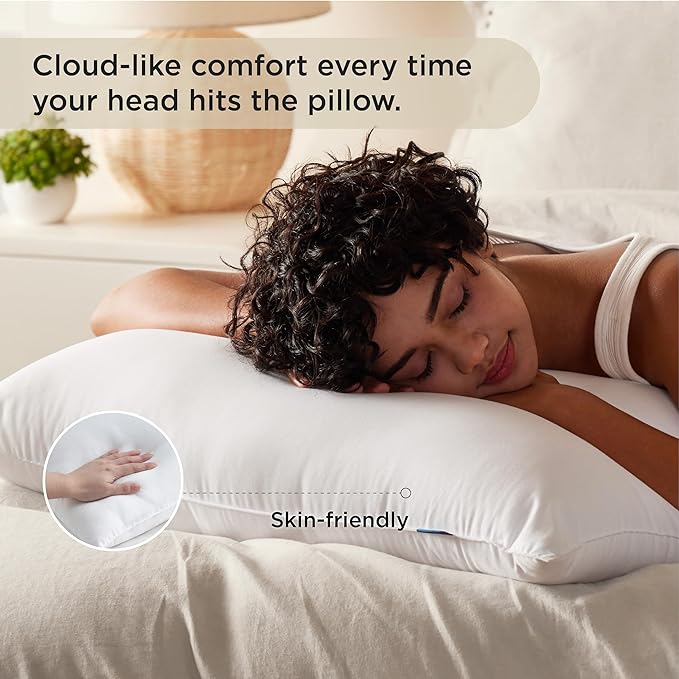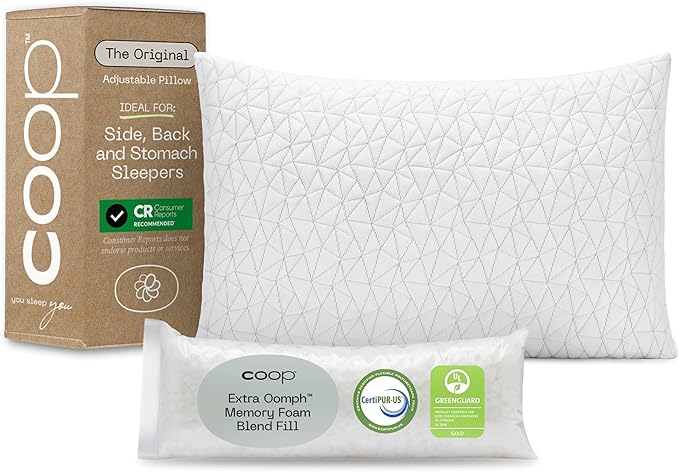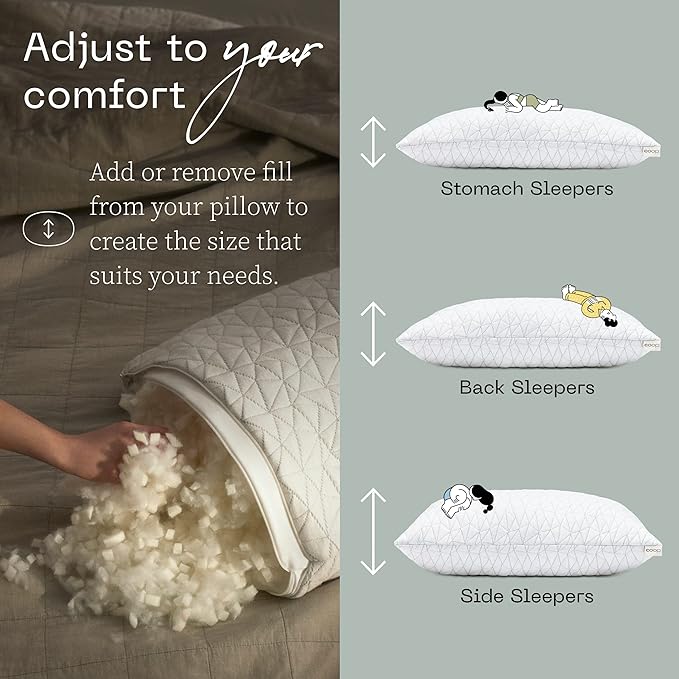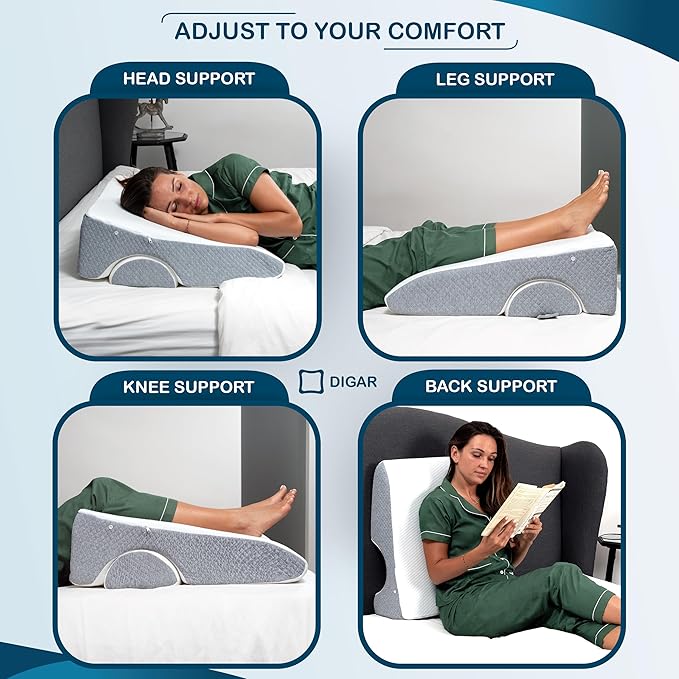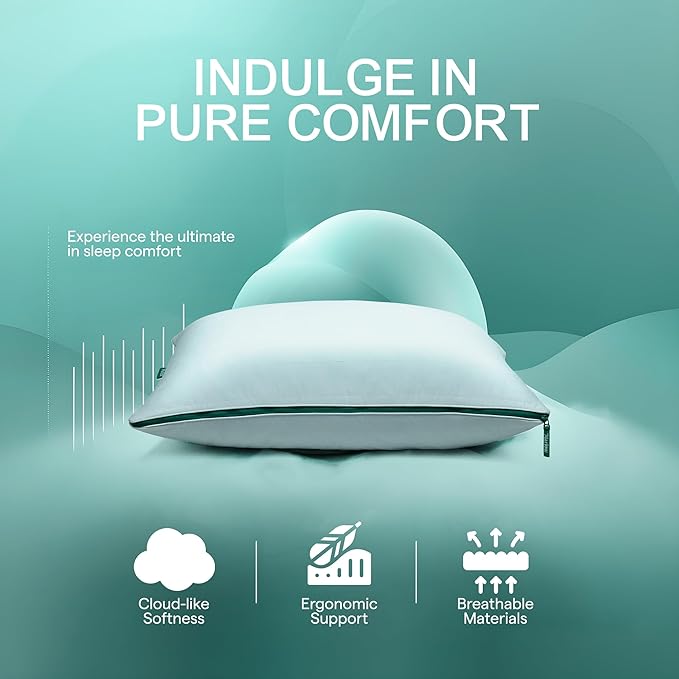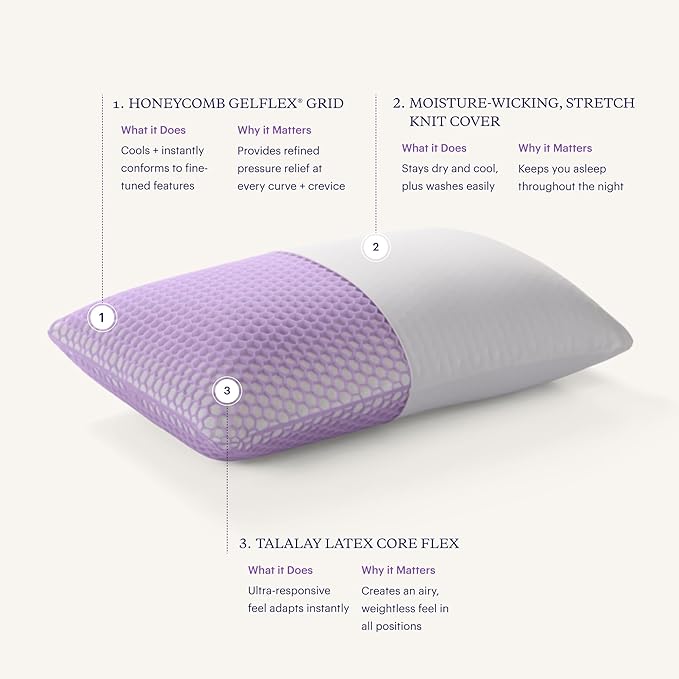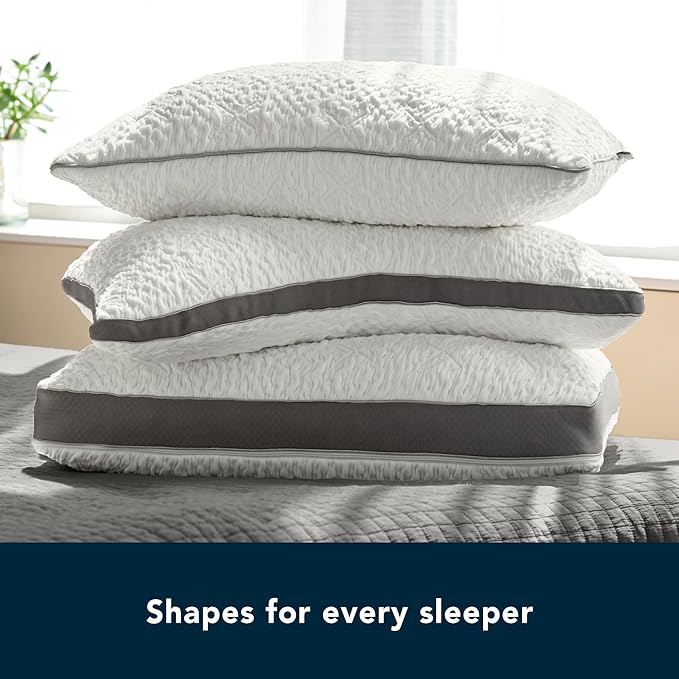If you’re reading this, there’s a good chance you’ve been lying awake at night, staring at the ceiling, desperately hoping for sleep to come. We’ve all been there—those nights that stretch on forever, leaving us groggy, irritable, and even anxious the next day. Sleep struggles are frustrating, and if you’ve tried melatonin before, you might be wondering why it hasn’t worked as well as you’d hoped—or why it’s left you feeling even worse.
Let’s talk about that. Melatonin is one of the most popular over-the-counter sleep aids, and for good reason: it’s natural (your body produces it!), and it’s widely available. But here’s the thing—melatonin isn’t for everyone. Some people find it ineffective, while others experience unwanted side effects like grogginess or strange dreams. For some, long-term use can even disrupt the body’s ability to naturally regulate sleep cycles.
So, what are your options? Thankfully, melatonin is not the only solution. In fact, there are plenty of non-melatonin sleep aids that can help you drift off without the downsides. Whether you’re looking for calming herbal remedies, supplements to support your body’s natural sleep systems, or lifestyle tools to improve your bedtime routine, there’s something out there for you.
We know how hard sleepless nights can be, and this guide is here to help you find alternatives that work—naturally, gently, and effectively. Ready to explore your options? Let’s dive in.
(Affiliate Disclosure: This article contains affiliate links, which means we may earn a small commission if you click through and make a purchase, at no extra cost to you. However, we only recommend products that we genuinely believe will add value to your health journey. At the same time, we always recommend trying a balanced and nutritious diet first before resorting to any sort of supplementation. For more details, please read our full Affiliate Disclosure.)
- The Downsides of Melatonin
- Best Non-Melatonin Sleep Aids for Natural Rest
- Lifestyle Habits to Boost the Body’s Own Melatonin Production
- 5. Choosing the Right Sleep Aid Without Melatonin
- Conclusion: No Melatonin Needed – Embrace Restful Nights Naturally
The Downsides of Melatonin
Melatonin supplements are often marketed as a quick fix for sleep troubles, and for many, they do the job—at least initially. However, not everyone wakes up feeling rested after using melatonin. For some, it brings side effects like grogginess, disrupted sleep patterns, or even headaches. Known as the “melatonin hangover,” this lingering drowsiness is one of the most common complaints and can leave you feeling worse than before.
But why does this happen? And what are the broader risks of relying on melatonin? Let’s dive deeper into the reasons behind melatonin’s downsides and explore why it might not be the best fit for everyone.
1. The “Melatonin Hangover”: Why You Wake Up Groggy
The “melatonin hangover” occurs when melatonin levels remain elevated into the morning hours. Melatonin is metabolized in the liver, and its half-life (the time it takes for half of the substance to break down) varies between 30 minutes to two hours, depending on factors like dosage, your age, and your liver’s efficiency. Taking too much melatonin or taking it too late at night can result in residual levels in your bloodstream when you wake up, leaving you feeling drowsy and unfocused.
Another factor is timing. Melatonin doesn’t induce sleep instantly; it simply signals your brain that it’s time to wind down. If you take it too close to your bedtime—or worse, after midnight—it might not fully synchronize with your body’s natural sleep-wake cycle. This misalignment can lead to disrupted sleep stages, which in turn causes feelings of grogginess upon waking.
Lastly, melatonin doesn’t act like sedatives, which actively suppress wakefulness. Instead, it influences your brain chemistry by binding to receptors that regulate sleep and wake signals. If these signals are still active in the morning due to lingering melatonin, your body struggles to switch into “wake” mode effectively, creating that hungover sensation.
2. Disrupting Your Body’s Natural Melatonin Cycle
Melatonin supplements mimic the natural hormone your body produces in response to darkness. While this can help in the short term, regular supplementation may interfere with your body’s ability to regulate melatonin production naturally. This is particularly true if you’re using high doses or taking it inconsistently, as your pineal gland may reduce its own melatonin output in response to the artificial influx.
Over time, this dependency can weaken your body’s natural circadian rhythm, making it harder to sleep without supplementation. This is especially problematic for individuals who don’t address the root cause of their sleep issues, such as stress, poor sleep hygiene, or irregular schedules. Instead of resetting your sleep-wake cycle, chronic melatonin use may mask deeper problems while disrupting your body’s hormonal balance.
3. Limited Effectiveness for Chronic Sleep Disorders
Melatonin is most effective for addressing specific sleep issues like jet lag or shift work, where the goal is to temporarily reset your circadian rhythm. However, research shows it’s less effective for chronic sleep disorders like insomnia, where anxiety, stress, or other factors often play a larger role.
For people with chronic insomnia, taking melatonin may lead to frustration, as it doesn’t tackle the underlying causes of sleeplessness. Unlike sedatives or anti-anxiety medications, melatonin doesn’t relax the body or calm a racing mind. When used incorrectly, this can lead to fragmented sleep or lighter sleep stages, which fail to provide the restorative rest you need.
4. Side Effects and Sensitivities
While melatonin is generally considered safe for short-term use, some individuals experience side effects, even at low doses. Common side effects include:
- Morning grogginess or prolonged drowsiness.
- Vivid or unusual dreams that may interrupt restful sleep.
- Headaches, nausea, or dizziness, which are often linked to higher doses or prolonged use.
Some people are particularly sensitive to melatonin, with even small amounts triggering these reactions. Age and genetics may also play a role in how effectively your body metabolizes melatonin, further contributing to variability in side effects.
5. Dependency Concerns
Although melatonin isn’t chemically addictive, it can lead to psychological reliance. People who regularly use melatonin may start to believe they can’t fall asleep without it. This mindset can prevent the development of healthy sleep habits, like maintaining a consistent bedtime routine or managing stress levels.
Additionally, those who increase their dosage over time—believing “more is better”—may inadvertently worsen their sleep problems. Studies suggest that doses higher than 5 milligrams often result in diminishing returns, with higher risk of side effects and no significant improvement in sleep quality.
6. Potential Interactions and Health Risks
Melatonin isn’t suitable for everyone. It can interact with medications such as blood thinners, antidepressants, and blood pressure drugs, potentially amplifying their effects. Additionally, people with certain health conditions, including autoimmune disorders or hormonal imbalances, should avoid melatonin unless directed by a healthcare professional.
Special populations, such as pregnant or breastfeeding individuals, should also approach melatonin with caution, as its safety hasn’t been thoroughly studied in these groups.
Who Should Avoid Melatonin?
Certain groups may want to steer clear of melatonin entirely:
- Pregnant or breastfeeding individuals (safety hasn’t been fully studied).
- People with autoimmune disorders (melatonin may stimulate the immune system).
- Those taking certain medications (e.g., blood thinners, antidepressants, or blood pressure meds, which can interact with melatonin).
A Better Path Forward
If any of these downsides resonate with you, don’t worry—there are plenty of other sleep aids without melatonin that can help you rest more easily. From calming herbs like valerian root to lifestyle changes like using weighted blankets, you don’t need to rely on melatonin to achieve restorative sleep.
In the next section, we’ll explore these natural alternatives that work with your body to promote deep, restful sleep—without the risks or side effects of melatonin.
Best Non-Melatonin Sleep Aids for Natural Rest
Now that we’ve covered why melatonin might not be the best choice for everyone, let’s dive into the exciting part: exploring non-melatonin sleep aids that can help you fall asleep naturally. These alternatives work with your body to support relaxation, reduce stress, and gently encourage restorative sleep—all without the downsides of melatonin.
Whether you prefer herbal remedies, nutrient-based solutions, or simple lifestyle enhancements, there’s an option for you.
A. Herbal Sleep Aids: Nature’s Gentle Soothers
Herbs have been used for centuries to promote calm and improve sleep quality. They’re a fantastic choice for those who want a gentle, natural solution without melatonin.
- Chamomile
Chamomile contains an antioxidant called apigenin, which binds to specific receptors in the brain, particularly the GABA-A receptors, to reduce anxiety and encourage sleepiness. This mechanism mimics the action of certain calming neurotransmitters, helping your body naturally wind down for the night. Chamomile also has mild anti-inflammatory properties.- –> Try this: Traditional Medicinals Organic Chamomile Tea
- Valerian Root
This powerful herb is often called “nature’s Valium” because of its ability to reduce the time it takes to fall asleep. Valerian Root works by increasing the levels of gamma-aminobutyric acid (GABA) in the brain, a neurotransmitter that reduces nervous system activity and promotes relaxation. This is similar to how some prescription sleep aids function, but valerian root achieves it in a gentle, natural way.- –> Try this: NOW Valerian Root Capsules 500mg
- –> Try this: MaryRuth Organics Valerian Root Liquid Drops
- Passionflower
Passionflower is a powerful yet gentle herb known for its ability to ease anxiety and improve sleep quality. Scientifically, it works by enhancing the activity of gamma-aminobutyric acid (GABA) in the brain, which helps to calm overactive brain signals and reduce restlessness. This makes it particularly effective for those who struggle with anxiety-induced insomnia or racing thoughts at bedtime.- –> Try this: Horbäach Passion Flower Capsules 2200mg
- –> Try this: Botanic Choice Passion Flower Liquid Extract
- Lavender
Compounds in lavender, such as linalool and linalyl acetate, interact with the brain’s serotonin receptors, helping to reduce stress and anxiety while promoting relaxation. Studies have shown that the scent of lavender can lower heart rate and blood pressure, creating a calming environment conducive to sleep.- –> Try this: UpNature Lavender Oil Roll On
B. Amino Acids and Nutrients: Supporting Your Body’s Natural Systems
Sleep isn’t just about calming your mind—your body needs the right nutrients to support its natural sleep processes.
- Magnesium
Magnesium is an essential mineral that plays a crucial role in promoting relaxation and improving sleep quality. It helps regulate neurotransmitters like gamma-aminobutyric acid (GABA), which calm the nervous system and prepare the brain for sleep. Magnesium also aids in relaxing muscles and reducing tension, making it particularly beneficial for those who experience stress or restless sleep. Additionally, it supports the production of melatonin, the hormone responsible for controlling your sleep-wake cycle. Magnesium glycinate is a popular choice for sleep due to its high bioavailability and gentle effects on the stomach.- –> Try this: NatureBell Magnesium Glycinate Capsules 500mg
- L-Theanine
L-Theanine, an amino acid found naturally in green tea, is a powerful sleep aid known for its calming effects on the mind. It works by increasing alpha brain waves, which are associated with a relaxed but alert state, and boosting levels of GABA, serotonin, and dopamine—neurotransmitters that help regulate mood and stress. Unlike sedatives, L-Theanine promotes relaxation without causing drowsiness, making it ideal for those who struggle with an overactive mind at bedtime.- –> Try this: L-Theanine 200mg by Nature’s Trove
- GABA (Gamma-Aminobutyric Acid)
GABA is a neurotransmitter that helps calm the nervous system, acting almost like a “brake” for your brain. Supplements can help increase your natural GABA levels, promoting relaxation and reducing anxiety.- –> Try this: Double Wood GABA 1000mg Capsules
C. Adaptogenic Herbs: Balance Stress, Sleep Better
Adaptogens are herbs that help your body adapt to stress, which is a common culprit behind sleepless nights. They’re especially great if your insomnia is related to anxiety or a busy mind.
- Ashwagandha
Ashwagandha works by lowering cortisol levels—the body’s primary stress hormone—which can interfere with the natural sleep cycle when elevated. Ashwagandha also enhances the activity of GABA receptors in the brain, helping to calm the nervous system and ease anxiety. Studies have shown that regular use of ashwagandha can improve sleep quality and duration, making it an excellent option for those struggling with stress-related insomnia.- –> Try this: Futurebiotics Ashwagandha Extra Strengh
- Reishi Mushroom
Reishi mushroom, often called the “mushroom of immortality,” is a natural adaptogen that helps the body manage stress and promotes relaxation. It contains triterpenes and beta-glucans, compounds that support the nervous system and reduce cortisol levels, making it easier to transition into a restful state. Reishi also has mild sedative effects, which can enhance sleep quality and help regulate the sleep-wake cycle.- –> Try this: FreshCap Organic Reishi Mushroom Capsules
D. Lifestyle Enhancers: Tools to Optimize Your Sleep Environment
Sometimes, the right sleep aid isn’t something you take—it’s something you use. Enhancing your sleep environment can make a big difference in how quickly you fall asleep and stay asleep.
- Weighted Blankets
Weighted blankets create a sensation called “deep pressure stimulation,” which helps reduce anxiety and signal your body to relax. They’re a game-changer for people who struggle with racing thoughts at bedtime. - White Noise Machines
If you’re easily disturbed by sounds during the night, a white noise machine can mask background noises and create a consistent, soothing soundscape. - Blackout Curtains and Eye Masks
Light exposure at night can disrupt your circadian rhythm, making it harder to fall asleep. Blackout curtains and eye masks ensure you have complete darkness for optimal rest.- –> Try this: MyHalos Sleep Mask – 100% Blackout
Lifestyle Habits to Boost the Body’s Own Melatonin Production
The fact that you can’t fall asleep might or might not be due to your body’s inability to produce melatonin naturally at the right time. Melatonin is naturally produced by your brain’s pineal gland. The problem? Modern life can interfere with your body’s ability to produce melatonin effectively.
If you’re looking for ways to enhance your sleep without relying on synthetic melatonin supplements, focusing on lifestyle habits that naturally boost melatonin production can be a game-changer. Let’s explore how you can help your body do what it was designed to do—naturally.
1. Embrace Darkness in the Evening
Your body starts producing melatonin in response to darkness, so reducing light exposure as bedtime approaches is crucial. Bright lights, especially from screens, can suppress melatonin and trick your brain into thinking it’s still daytime.
- Pro Tip: Dim your lights and limit screen time at least an hour before bed. Use warm, amber-toned lighting in the evening to mimic natural sunset colors.
- Bonus Tip: If screen time is unavoidable, wear blue-light-blocking glasses to minimize melatonin disruption.
- –> Try this: Blue Light Blocking Glasses for Men/Women
2. Keep a Consistent Sleep Schedule
Your body’s melatonin production follows a circadian rhythm—a 24-hour internal clock. By going to bed and waking up at the same time every day, you train your body to release melatonin at the right times, making it easier to fall asleep naturally.
- Pro Tip: Avoid staying up late or sleeping in on weekends, as this can disrupt your body’s rhythm.
- Tool to Try: Sleep tracking apps can help monitor your patterns and keep you on track – or even a specially designed sleep tracking pad.
- –> Try this: Withings Sleep Tracking Pad Under The Mattress
3. Get Natural Light During the Day
Just as darkness signals your body to produce melatonin at night, exposure to natural light during the day helps regulate your circadian rhythm. Sunlight suppresses melatonin during waking hours, making the hormone’s release at night more effective.
- Aim to spend at least 30 minutes outdoors in the morning or early afternoon. If that’s not possible, consider using a light therapy box during the day.
4. Optimize Your Evening Meal and Drinks
What you eat and drink in the evening can impact your body’s ability to produce melatonin. Foods rich in tryptophan, magnesium, and B vitamins can help your body naturally increase melatonin levels.
- Snack Smart: Try a banana with almond butter or a handful of walnuts, both of which are known to support melatonin production.
- Herbal Teas: Chamomile, passionflower, and valerian root teas don’t contain melatonin but can promote relaxation and make it easier for your body to transition to sleep.
5. Create a Sleep-Friendly Environment
Your bedroom should be a haven for sleep. A comfortable, distraction-free space encourages your body to produce and respond to melatonin effectively.
- Keep it Dark: Use blackout curtains or an eye mask to block out any light. Even small amounts of artificial light can disrupt melatonin production.
- Lower the Temperature: Cooler room temperatures (60–67°F) signal your body that it’s time to sleep.
- Quiet Matters: If noise is an issue, try a white noise machine to create a consistent, soothing sound environment.
6. Engage in Evening Relaxation Rituals
Stress and high activity levels in the evening can delay melatonin production. Incorporating calming activities into your bedtime routine can help you unwind and signal your body to start producing melatonin.
- Ideas to Try:
- A warm bath with magnesium salts to relax muscles and calm the mind.
- Mindfulness meditation or deep breathing exercises to ease anxiety and prepare for rest.
- Aromatherapy with lavender or other calming essential oils to set a relaxing mood.
- –> Try this: Ancient Minerals Magnesium Bath Flakes
7. Avoid Melatonin Blockers
Certain habits can interfere with melatonin production, so it’s essential to minimize them:
- Caffeine: Avoid coffee, tea, and energy drinks after mid-afternoon, as caffeine can suppress melatonin for hours.
- Alcohol: While a nightcap might feel relaxing, alcohol disrupts melatonin production and reduces sleep quality.
- Overhead Bright Lighting: Stick to dim, ambient lighting in the hours leading up to bedtime.
5. Choosing the Right Sleep Aid Without Melatonin
Finding the right sleep aid can feel overwhelming, especially with so many options available. The key is to understand your unique needs and experiment with solutions that work best for your body and lifestyle. In this section, we’ll guide you through the process of selecting the most effective non-melatonin sleep aids and combining strategies to optimize your sleep.
1. Identify the Root Cause of Your Sleep Struggles
Sleep difficulties stem from a variety of physical, emotional, and environmental factors, and treating the root cause is often more effective than masking the symptoms. Let’s explore some of the most common culprits behind sleepless nights:
Stress and Anxiety: The Sleep Saboteurs
One of the most frequent causes of poor sleep is stress or anxiety. Racing thoughts, heightened cortisol levels (the body’s stress hormone), and an overactive mind can all delay the natural onset of sleep. Even if you manage to fall asleep, stress can prevent you from entering the deeper stages of sleep needed for full restoration.
- What to Look For: If your mind feels like it’s running a marathon at night, calming aids like valerian root, passionflower, or ashwagandha may help. These herbs reduce cortisol levels and enhance the activity of GABA, a neurotransmitter that slows down brain activity.
- Complementary Tools: Pairing supplements with relaxation techniques, such as meditation or deep breathing, can help retrain your mind to unwind at bedtime.
Physical Discomfort or Restlessness
Tossing and turning in bed is often a sign of physical discomfort, whether from tense muscles, chronic pain, or conditions like restless legs syndrome. Your body needs to feel at ease to drift into a deep and restful sleep.
- What to Look For: Magnesium supplements are particularly effective here, as they relax muscles and support nervous system function. Weighted blankets can also provide deep pressure stimulation, promoting relaxation and reducing restlessness.
- Complementary Tools: Stretching or light yoga before bed can help release tension and prepare your body for sleep.
Irregular Sleep Schedules
Your body operates on a circadian rhythm, an internal clock that regulates your sleep-wake cycle. Irregular schedules, such as staying up late on weekends or frequently changing work shifts, can throw this rhythm out of sync, making it difficult to fall asleep at consistent times.
- What to Look For: Natural light exposure during the day and darkness in the evening are key to resetting your circadian rhythm. Tools like sun-mimicking lamps can help during the day, while blackout curtains and sleep masks create a sleep-friendly environment at night.
- Complementary Tools: Try establishing a consistent bedtime and wake-up routine to help re-train your internal clock.
Environmental Factors: Noise, Light, and Temperature
Your sleep environment has a major impact on your ability to rest. Bright light, noise, or an uncomfortable temperature can signal your brain that it’s not time to sleep, even when you’re exhausted.
- What to Look For: White noise machines can mask disruptive sounds, while blackout curtains or eye masks block out light that interferes with melatonin production. A cooling mattress or breathable bedding can also help regulate your body temperature for better sleep.
- Complementary Tools: Combine these environmental fixes with calming scents like lavender, which has been shown to enhance sleep quality.
Underlying Health Conditions or Medications
Sometimes, sleep issues are a symptom of an underlying health condition, such as sleep apnea, hormonal imbalances, or chronic pain. Certain medications can also interfere with your sleep cycle, either by making you drowsy during the day or keeping you awake at night.
- What to Look For: Supplements like GABA and L-theanine can help relax your mind and body, but it’s also essential to address the root condition with your healthcare provider.
- Complementary Tools: Consider using a sleep tracker to monitor your sleep patterns and identify any recurring issues you can discuss with your doctor.
Diet and Stimulants
What you consume plays a crucial role in sleep quality and melatonin production. Caffeine blocks adenosine, a brain chemical that promotes sleep, so avoid it after mid-afternoon. Alcohol disrupts REM sleep and interferes with melatonin, while heavy or sugary meals before bed can cause discomfort and blood sugar spikes that wake you up.
To naturally boost melatonin, focus on foods rich in tryptophan (turkey, eggs, almonds), which your body converts to serotonin and then melatonin. Pair with magnesium (spinach, seeds, bananas) to activate melatonin enzymes, vitamin B6 (salmon, potatoes) to metabolize tryptophan, and zinc (shellfish, chickpeas) for hormone balance. Omega-3s (fatty fish, walnuts) also enhance serotonin production.
2. Start with One Solution at a Time
It’s tempting to try multiple remedies all at once, but starting with just one can help you determine what’s actually working. For example:
- Begin with a simple addition like chamomile tea or magnesium supplements.
- Assess how it affects your sleep for a few nights before incorporating another tool, such as a weighted blanket or white noise machine.
3. Combine Strategies for Better Results
Often, the best results come from combining multiple sleep aids and lifestyle changes. For example:
- Pairing magnesium supplements with a weighted blanket can address both physical tension and stress.
- Using lavender essential oil alongside guided meditation creates a calming bedtime ritual.
- Combining blackout curtains with a white noise machine ensures an optimal sleep environment free of light and sound distractions.
4. Consider Your Preferences and Lifestyle
Think about what fits easily into your nightly routine. Some solutions, like sipping tea or taking a supplement, are quick and easy. Others, like upgrading your mattress or adding blackout curtains, require a bit more effort but can yield long-term benefits.
For busy individuals or frequent travelers, portable tools like sleep masks and compact herbal supplements can be ideal.
5. Seek Professional Guidance if Needed
If you’ve tried various remedies and still struggle with sleep, it may be time to consult a healthcare professional. Chronic insomnia or other sleep disorders like sleep apnea may require additional intervention or medical advice.
Some of the sleep aids discussed, such as adaptogenic herbs or GABA supplements, may also interact with medications, so it’s wise to double-check with your doctor before starting something new.
6. Focus on Progress, Not Perfection
Remember, improving your sleep takes time and patience. It’s about making gradual changes that work for you rather than expecting overnight results. Celebrate small wins, like falling asleep 15 minutes faster or waking up feeling a little more refreshed.
Our Recommendation: Start Today
Don’t wait for another sleepless night to try these solutions. Whether you’re adding a cup of chamomile tea to your bedtime routine or investing in a weighted blanket, each step you take brings you closer to peaceful, restorative sleep.
Conclusion: No Melatonin Needed – Embrace Restful Nights Naturally
If you’ve been struggling to find a sleep solution that truly works, you’re not alone—and we hope this guide has shown you that there’s life (and sleep!) beyond melatonin. Whether melatonin hasn’t worked for you or you’ve experienced its downsides, there are plenty of natural, effective alternatives that can help you get the rest you need without the grogginess, dependency concerns, or other issues.
The beauty of non-melatonin sleep aids lies in their diversity: calming herbal remedies, body-supporting nutrients, stress-relieving adaptogens, and practical tools all work together to create a personalized approach to better sleep. By identifying the root cause of your sleep struggles and experimenting with different solutions, you can create a bedtime routine that works harmoniously with your body and lifestyle.
Good luck!
